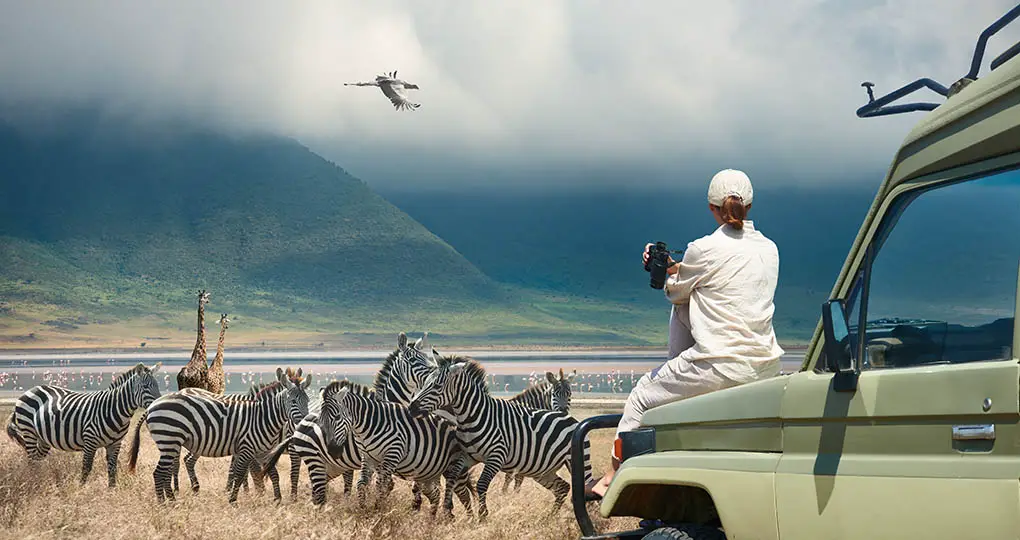There are a lot of misconceptions about Africa travel because the African continent developed a reputation for violence, which has been amplified by media, to where people who have not yet been are sometimes scared off by the prospect of being robbed, hijacked, or caught up in a civil conflict.
The truth is that, as with any continent, a country must assess the security situation nation (and then according to a specific location). Game reserves of South Africa, for example, cannot be compared to the inner cities of the Democratic Republic of Congo in terms of safety or anything else.
Africa isn’t even listed among the top ten most dangerous cities globally according to a 2019 report (all of which are in America). Because of the high level of poverty, petty theft and muggings are more widespread than in many first-world nations, so always be mindful of your things and surroundings. Finally, prepare yourself before leaving on your vacation to protect yourself from various threats, including violent crime, gender-based violence, and exotic diseases.

The United States State Department issues extensive travel advisories for every country globally, and you should research your destination for practical facts and legal requirements before going there. However, only seven African countries, Mali, Burkina Faso, Libya, Central African Republic, South Sudan, Ethiopia, and Somalia1, have the highest “Do Not Travel” warning as of November 24, 2020, civil upheaval and armed conflict.
As of November 2020, virtually every other country has a “Reconsider Travel” notice; however, in most cases, the reason is temporary and related to COVID. Civil war, violent political demonstrations, and terrorist attacks are all improbable threats to your safety. However, it’s a good idea to keep up to date on the current situation in your selected destination by carefully reading government travel advisories before booking your trip and again before departing.
Is Africa A Risky Place?
For most visitors to Africa, petty theft is the most typical issue. This is because most of the population in many nations lives on or near the poverty line and because of that, there are so many misconceptions about Africa travel, but most tourists (regardless of their financial situation) appear to be relatively wealthy.
In most parts of the continent, violent crimes such as hijackings, theft at gunpoint or with a knife, rape, and murder are uncommon (at least for tourists). However, significant crimes can occur in any country. Avoiding dangerous regions, especially at night, and travelling in a group is the best way to avoid being a victim. If you’re the victim of a carjacking or a house invasion, keep in mind that most people are wounded because they refuse to cooperate. Tell your assailants where your assets are, provide them with your PIN code, and do whatever it takes to get out alive.
Tropical diseases are a greater threat than violent crime in many areas. You could be in danger for a range of life-threatening illnesses, ranging from hepatitis to bilharzia, depending on where you plan on travelling. Mosquitos spread many of Africa’s worst diseases, so taking care to prevent being bitten is one way to keep healthy. The best method to avoid malaria is to speak with your doctor about anti-malaria medication and any necessary vaccines.
Is It Safe To Travel Alone In Africa?

Africa travel. [Photo by: Daytourz]
As a foreigner, you’ll most likely stick out, yet appearing lost can make you even more exposed. If you become bewildered, walk deliberately, pull out a map if possible, or ask for directions inside a nearby shop, restaurant, or hotel. Unless you’re going with a qualified local guide, avoid the poorer sections of big cities and towns, such as informal settlements and townships. Of course, regardless of where you are, keep a close eye on your possessions and pockets around crowded bus stops, train stations, markets, and bazaars, which are frequent pick-pocketing areas.
Get a police report if you are a victim of a crime while travelling in Africa. Before replacing your belongings, passport, and tickets, most insurance companies, travel agencies, and embassies will require a police record. A visit to a police station in Africa will be an unforgettable event. Be courteous and friendly, and if a charge is requested, agree to it. If your credit cards are taken, contact your credit card company directly. If your passport is stolen, contact your embassy.
Is It Safe For Women To Travel In Africa?

Africa Travel. [Photo: Goway Travel]
Take the same measures you would at home to avoid more serious issues, such as never walking alone at night and staying in a safe place.








